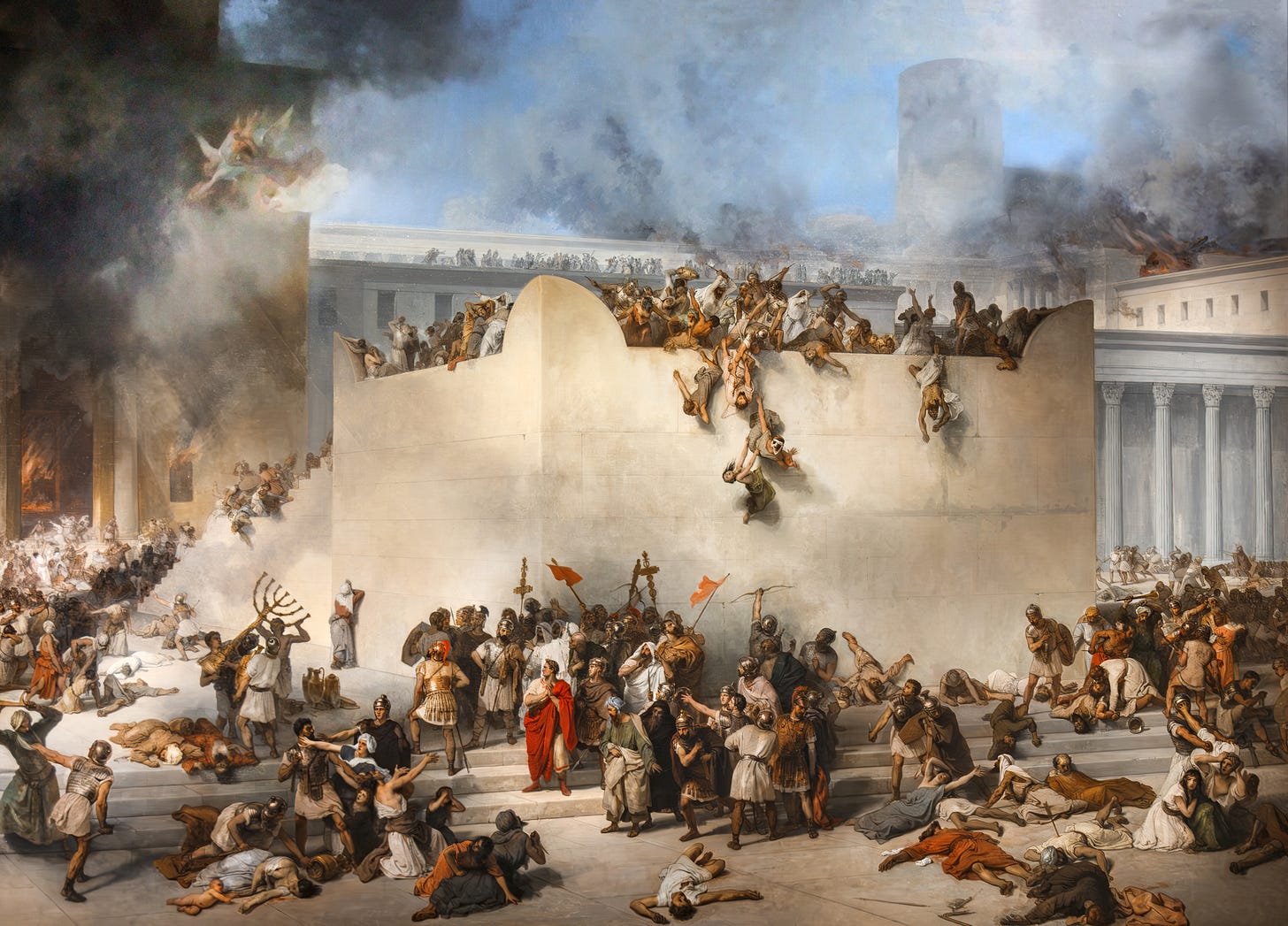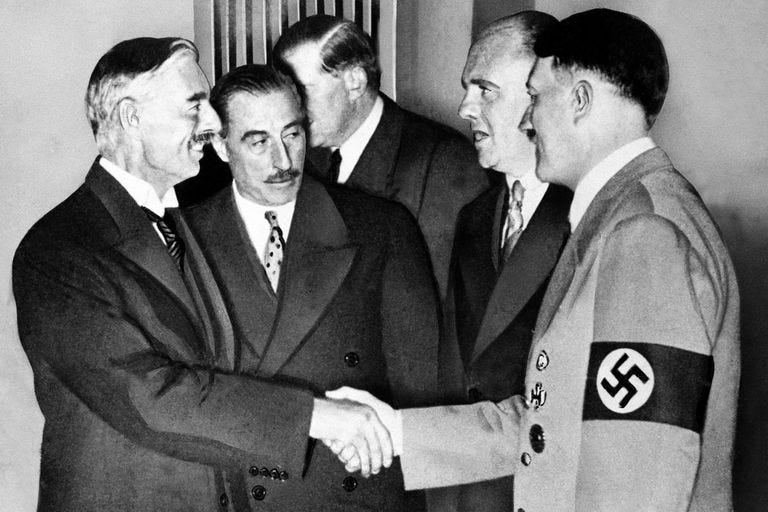This week, according to the Jewish calendar, marks Tisha B'Av, a day synonymous with calamity in Jewish tradition. Tisha B'Av commemorates the destruction of the First Temple in 586 BCE and the Second Temple in 70 CE. This is also the date of the expulsion of Jews from England in 1290, France in 1306, Spain in 1492, and the start of mass deportations from the Warsaw Ghetto to Treblinka in 1942. It is a day observed with fasting and mourning, symbolizing the perpetual threat to Jewish sovereignty and existence. One cannot understand modern Israel without grasping the long-term perspective of Jewish history.
The destruction of the Jerusalem temple, Francesco Hayez, 1867
A famous anecdote illustrates this historical consciousness. It is said that on Tisha B'Av, Napoleon passed by a Jewish synagogue where he observed the congregants sitting on the floor in darkness, lit by candles, weeping and reciting lamentations. Curious, he inquired about their mourning. Upon learning that they were lamenting the destruction of the Temple, he asked how long ago this had occurred. When informed it had been over two thousand years, Napoleon remarked, "A people that remembers its past with such fervor will endure any future trials. A nation that continually mourns its homeland's destruction will surely see its hope fulfilled."
The Emperor Napoleon in His Study at the TuiJacques-Louis David, 1812
Despite its modern façade, Israel is perceived by its citizens as the third significant attempt to establish a sovereign state in the historical Land of Israel. This perspective is essential for understanding Israel's current strategic behavior. For Israelis, their state is not merely a recent establishment but a continuation of a millennia-old historical endeavor. This long-term view shapes their approach to security and diplomacy, particularly concerning existential threats.
In this context, Israel's relationship with major powers, especially the United States, and its stance towards Iran are deeply influenced by historical consciousness. Israel recognizes its dependence on powerful allies but is simultaneously wary of the reliability of such alliances. This apprehension stems from historical precedents where Jewish communities have been abandoned or sacrificed in broader geopolitical schemes.
Drawing parallels with World War II, Israel fears becoming a pawn in global appeasement policies. The memory of Czechoslovakia, sacrificed in the Munich Agreement to appease Nazi Germany, looms large. Israel is determined not to meet a similar fate, even if it means contemplating extreme measures, such as the use of nuclear weapons.
Munich Agreement 1938
Until recently, Israel's strategy towards the Iranian threat was relatively restrained. The underlying assumption was that former President Trump’s potential return to power would create a more favorable international environment for Israel. Trump’s policies were seen as supportive, providing Israel with the leeway to manage threats through conventional means.
However, the impending U.S. elections have introduced significant uncertainty. The prospect of a Harris administration is perceived in Israel as potentially hostile. There is a widespread belief that such an administration might be willing to sacrifice Israeli existential interests for broader diplomatic gains, similar to historical precedents.
Given this scenario, the U.S. faces right now two stark choices: it can either provide the necessary military support to Israel to address the Iranian threat through conventional means immediately , or it must understand that Israel will act unilaterally and potentially desperately to ensure its survival. The latter scenario, driven by an acute sense of historical urgency and existential threat, could lead to unpredictable and possibly catastrophic outcomes.
The U.S. elections have thus become a critical juncture for Israel. The tranquility of a foreseeable Trump victory has given way to a strategic crisis. Israel’s current strategic behavior, marked by heightened anxiety, reflects a deep-seated fear of being left to fend for itself against formidable adversaries.
Israel’s actions on the global stage cannot be fully understood without acknowledging its historical consciousness. The state’s long memory informs its perception of threats and alliances, driving a policy that is both defensive and preemptively aggressive. As the U.S. political landscape shifts, so too does Israel's strategic calculus, rooted in the long arc of its history. This perspective not only shapes its present but also its approach to an uncertain future.







You say Israel acting unilaterally would unpredictably and possibly lead to catastrophe. But If Iran produces nuclear weapons, that would be predictably and certainly a catastrophe. No?